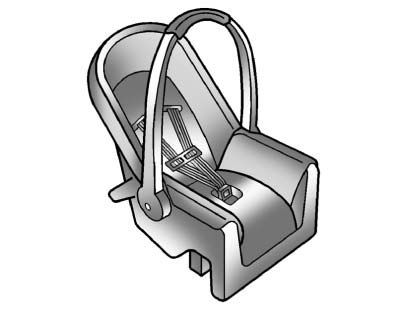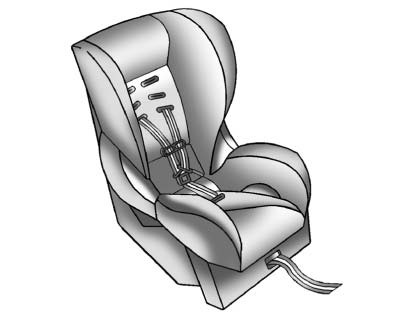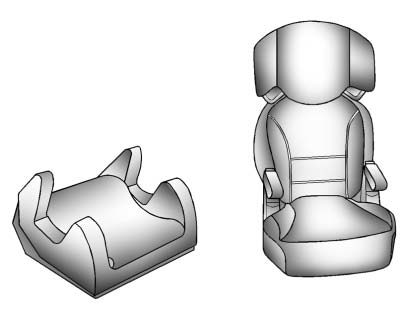Child Restraint Systems
 (A) Rear-Facing Infant Seat
(A) Rear-Facing Infant Seat
A rear-facing infant seat (A) provides restraint with the seating surface against the back of the infant.
The harness system holds the infant in place and, in a crash, acts to keep the infant positioned in the restraint.
 (B) Forward-Facing Child Se
(B) Forward-Facing Child Se
A forward-facing child seat (B) provides restraint for the child's body with the harness.
 (C) Booster Seats
(C) Booster Seats
A booster seat (C) is a child restraint designed to improve the fit of the vehicle's safety belt system.
A booster seat can also help a child to see out the window.
See also:
Transmission Messages
SERVICE TRANSMISSION
This message displays if there is a problem with the transmission. See your dealer.
SHIFT TO PARK
This message displays when the transmission needs to be shifted to P (Park).
...
Wheel Alignment and Tire Balance
The tires and wheels were aligned and balanced at the factory to provide the longest tire life and best overall performance. Adjustments to wheel alignment and tire balancing will not be necessary on ...
Passenger Compartment Air Filter
The filter removes dust, pollen, and other airborne irritants from outside air that is pulled into the vehicle.
The filter should be replaced as part of routine scheduled maintenance.
See Scheduled ...


